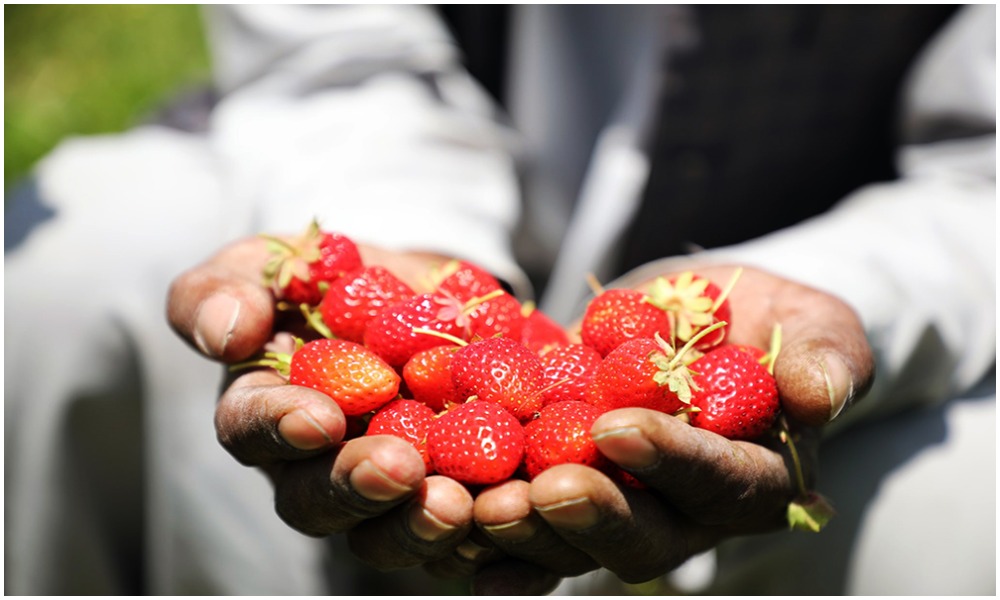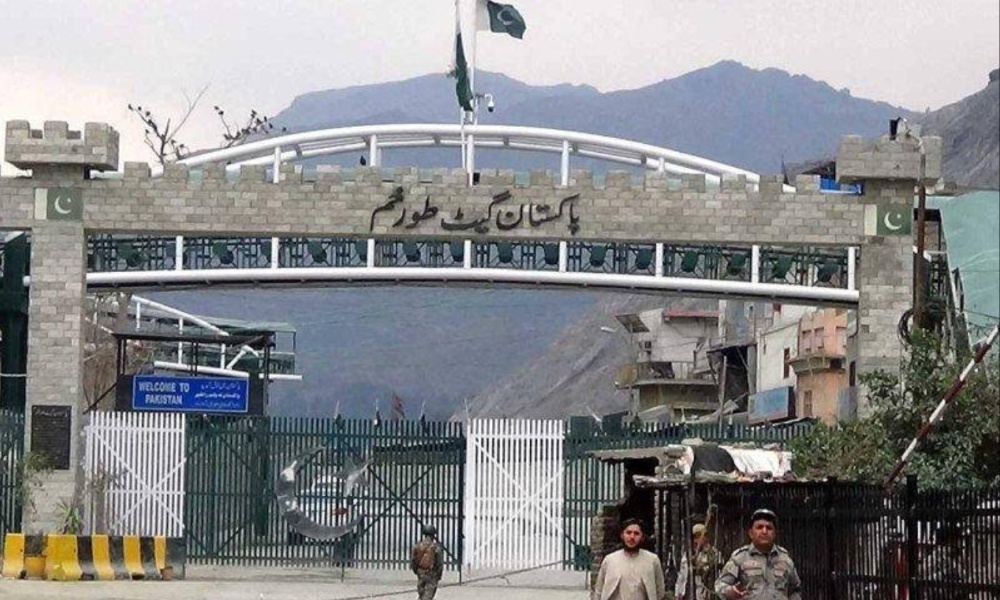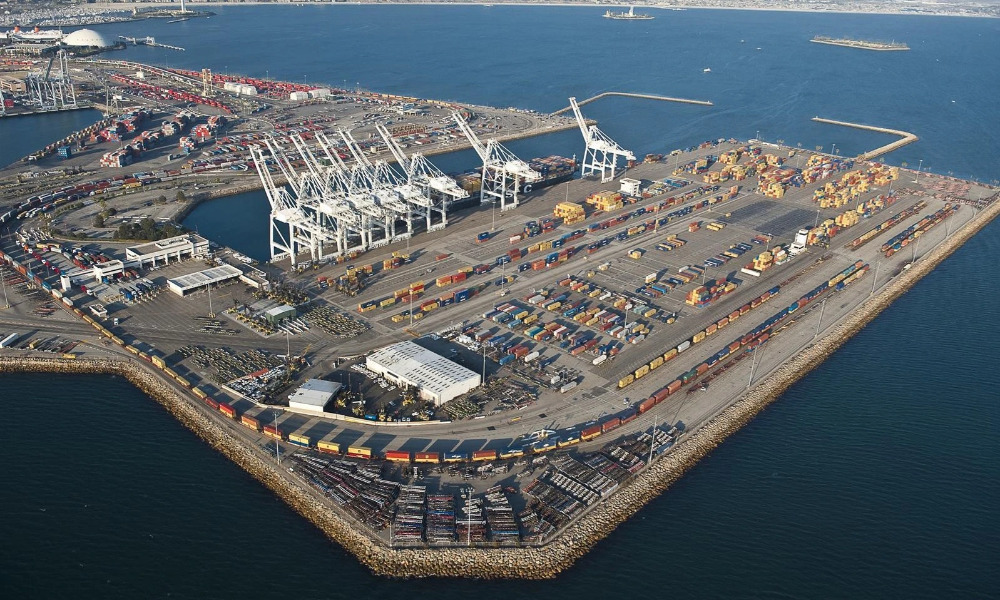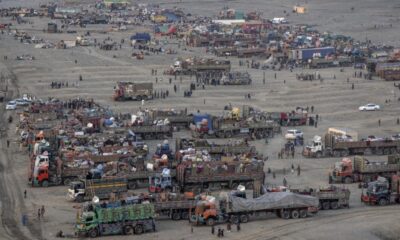Business
Strawberry cultivation increases in Herat

Herat’s Department of Agriculture, Irrigation and Livestock says that due to favorable weather conditions and the interest of farmers, the cultivation of strawberries in this province has flourished and that currently over 100 hectares is being used to grow this popular fruit.
Bashir Ahmad Ahmadi, acting head of Herat’s agriculture department, said that with the increase in cultivated areas, it is expected that the strawberry yield in the province will exceed 150 metric tons this year.
Ahmadi says that strawberries are grown in both greenhouses and outdoors, but many farmers are now growing them in greenhouses.
Herate currently has the most strawberry farms in the country.
Strawberries, which are a good source of Vitamin C, are a sought after fruit among Afghans and currently sell for between 100 and 120 Afghanis per kilogram on local markets.
“Our production is growing every year, and this has made me more interested in increasing the cultivation of this crop,” said Reza Dehqan, head of the Paliz Sabz strawberry farm in Herat.
Dehqan has cultivated 20 hectares of land in two ways, greenhouses and open fields, and has created job opportunities for 30 people, many of whom are women.
Dehqan owns one of the largest strawberry farms in the country, from which 37% of Herat strawberries are obtained.
He said that in addition to Herat, he sells his strawberries in Nimroz, Ghazni, Farah, Kandahar and Badghis provinces. Interest in strawberries has in turn grown in these provinces, he said.
This sector has also meanwhile attracted women and most strawberry farms in Herat employ them.
“We are ten women harvesting and packing in this greenhouse, which has improved our living conditions,” said Maryam, who works on a strawberry farm in Enjil district.
“Strawberries are a lucrative crop,” says Zarghoneh, another farmer.
Business
Exports to Pakistan grind to a halt over faulty scanner at Torkham
Pakistani authorities closed the border to vehicles coming in from Afghanistan after the scanning machine used to track imports developed technical problems.

A faulty scanner on the Pakistan side of Torkham border left goods trucks stranded in Afghanistan this week, Pakistani media reported.
Pakistani authorities closed the border to vehicles coming in from Afghanistan after the scanning machine used to track imports developed technical problems.
Importers in Pakistan told Dawn that both the Afghan and Pakistani authorities allowed only empty trucks stranded on the Afghan side to cross into Pakistan.
This comes after the border crossing was closed for a month due to disputes and clashes between border forces. The crossing only reopened late March.
According to border officials, this is the second time that the scanner developed problems since the reopening of the crossing. As a result exports from Afghanistan to Pakistan ground to a halt. Exports included coal, soapstone, fresh produce and dried fruit.
Frustrated traders have called for the scanning system to be replaced with a modern version in order to resolve trade challenges at the border.
Traders also voiced their frustration over customs tariffs at the border. They said the customs terminal operator, National Logistic Cell, charges Rs8,000 for every truck that crosses, whether it is loaded or empty.
Business
Gold climbs to record high as tariff worries bolster safe-haven demand

Gold’s record run extended to another all-time high on Tuesday, buoyed by safe-haven demand as investors brace for U.S. President Donald Trump’s planned announcement on reciprocal tariffs.
Spot gold was up 0.3% at $3,131.56 an ounce at 0914 GMT, after hitting a record high of $3,148.88 earlier, Reuters reported.
U.S. gold futures were 0.3% higher at $3,159.10.
“Trump’s tariff comments and his increasingly volatile stance on Russia’s war against Ukraine are proving the perfect chaos for new record gold prices,” surpassing even the COVID pandemic five years ago, said Adrian Ash, head of research at online marketplace BullionVault.
Trump said on Sunday his reciprocal tariffs to be announced on Wednesday would include all countries, rather than a limited number.
Goldman Sachs on Monday raised the probability of a U.S. recession to 35% from 20% and said it expected more rate cuts by the Federal Reserve, as Trump’s tariffs roil the global economy and upend financial markets.
Gold, traditionally seen as a hedge against uncertainty and inflation, has risen more than 15% this year. Non-yielding bullion also tends to do well in a low interest rate environment.
“The market is watching April 2 closely for further economic indicators that could impact Federal Reserve policy decisions. If rate cuts are confirmed, this would provide additional support for gold’s upward trajectory,” said Alexander Zumpfe, a precious metals trader at Heraeus Metals Germany.
Bullion’s rally this year has also been supported by strong demand from central banks, geopolitical instability in the Middle East and Europe, and increased flows into gold-backed exchange-traded funds.
In the last session, gold closed out its strongest quarter since 1986, and climbed over $3,100/oz, marking one of the most significant upswings in the precious metal’s history.
Investors will also monitor U.S. job openings data later on Tuesday and the U.S. non-farm payrolls report on Friday.
Silver steadied at $34.06 an ounce, platinum fell 0.4% to $988.35, and palladium gained 0.3% to $985.86.
Business
Efforts underway to expand Afghanistan’s trade relations with India
A number of investors also suggest that the Islamic Emirate should actively participate in regional and trade fairs to increase exports, so that Afghan products can be marketed in regional and global markets.

The Ministry of Industry and Commerce says that efforts are underway to expand trade relations with India, the volume of which reaches $650 million annually.
Abdulsalam Jawad Akhundzada, a spokesman for the Ministry of Industry and Commerce, says that India is also interested in expanding trade relations with Afghanistan, and Kabul has also taken steps in this regard by using Chabahar Port, and talks have been held with the Indian side on visas.
The Chamber of Commerce and Investment also says that trade relations between Afghanistan and India are expanding and these relations are strengthening with each passing day. According to officials of the chamber, Afghanistan has exported goods worth $500 million to India in the past year.
A number of investors also suggest that the Islamic Emirate should actively participate in regional and trade fairs to increase exports, so that Afghan products can be marketed in regional and global markets.
According to investors, once the visa issues with India are resolved, a large portion of the country’s fresh and dried fruits will be exported to India because India is a good market for Afghan fruits in the region.
Investors want the Islamic Emirate to pave the way for increased exports to India through Chabahar Port.
-

 Health5 days ago
Health5 days agoGlobal organizations warn of health crisis due to aid cuts in Afghanistan
-

 World4 days ago
World4 days agoMyanmar quake death toll hits 1,700 as aid scramble intensifies
-

 Sport4 days ago
Sport4 days agoIPL 2025: Gujarat Titans beat Mumbai Indians by 36 runs
-

 Latest News3 days ago
Latest News3 days agoSwitzerland re-establishes presence in Kabul with humanitarian office
-

 Latest News3 days ago
Latest News3 days agoPakistan plans to expel 3 million Afghan refugees this year
-

 Regional3 days ago
Regional3 days agoIran’s Khamenei warns of ‘strong’ response if US attacks
-

 World3 days ago
World3 days agoSouth Korea, China, Japan seek regional trade amid Trump tariffs
-

 Latest News4 days ago
Latest News4 days agoUS citizen detained in Afghanistan has been freed
























